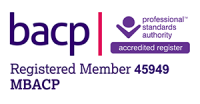Some people prefer to seek help from a therapist while others choose to make changes on their own
Whichever direction you take, the first step towards self-development is recognising there is a problem.
 Self-help therapy has grown in popularity and is available in a variety of formats.
Self-help therapy has grown in popularity and is available in a variety of formats.
Every person has a very different self-perception based on his or her own life experiences, culture and background. Undertaking any form of self-help whether it is through books, videos, self-help groups, online forums or podcasts, will be perceived from an individual’s subjective personal interpretation and perception of the world based upon their own unique life experience.
Self-help material is widely available, however it tends to be mass-produced, homogenous and impersonal and is a completely different form of therapy compared to working together with a therapist who is highly personalised and involved. Therapists can equip clients with tools that can address difficult emotions in positive ways, for instance using cognitive behavioural therapy (CBT). A therapist will also be able to adapt therapy to better meet the needs of a client whereas self-help at home has limited interaction and no ability to detect or respond to negative therapeutic reactions.
In some instances people may have more than one symptom and condition, with varying levels of severity that will need to be addressed expertly by a qualified therapist.
Integrative therapy involves a variety of therapy approaches and elements to give the best possible help to an individual as it is tailored to the individual’s whole emotional, physical, social and psychological needs, personal and life circumstances. By combining and integrating a variety of psychology and counselling practices and theories, the integrative therapist will tailor the therapy to the client, focussing on the whole of the individual’s needs and helping the client maximise their full potential.
A therapist is empathetic whilst helping, listening, discussing and encouraging a client to explore their problems and issues and work towards a resolution.
 Our personal counselling approach enables clients to discuss and explore problems that they are experiencing in a confidential and non-judgemental environment. Using a range of psychology and cognitive techniques, our therapists can assist and help to facilitate personal growth and healing for a variety of life’s problems and difficulties. Each person will be different and have a unique life experience; therefore a therapist can help an individual move forward by understanding their personal experience from their point of view and formulating an approach that is suitable for them.
Our personal counselling approach enables clients to discuss and explore problems that they are experiencing in a confidential and non-judgemental environment. Using a range of psychology and cognitive techniques, our therapists can assist and help to facilitate personal growth and healing for a variety of life’s problems and difficulties. Each person will be different and have a unique life experience; therefore a therapist can help an individual move forward by understanding their personal experience from their point of view and formulating an approach that is suitable for them.
Communications and relationship
Another disadvantage of using self-help methods is that self-help is one-way when it comes to communication and feedback. There is no relationship built with a counsellor and no opportunity for a two-way dialogue.
Attending therapy means that an individual is able to draw upon the specialism and expertise of a counsellor, something that is impossible with a self-help book or podcast. People who are having difficulties and need someone to guide them through are able to establish a trusted relationship with their counsellor. This bond can help to draw out issues from the individual, enabling a dialogue in order to progress towards a solution. Therapists also provide vital feedback so that clients can recognise and overcome barriers to their progress. A relationship between a client and their therapist is an important factor for effective therapy.
 At One Therapy we also offer marriage counselling and couples counselling services. Our couples counselling therapists help partners to resolve problems in their relationship in a proactive and structured approach. It enables both parties to be involved and heard with equal discussions so that problems can be identified and addressed.
At One Therapy we also offer marriage counselling and couples counselling services. Our couples counselling therapists help partners to resolve problems in their relationship in a proactive and structured approach. It enables both parties to be involved and heard with equal discussions so that problems can be identified and addressed.
A couple experiencing relationship problems and consulting self-help materials will find it hard to recognise issues and relationship dynamics that are causing their problems, as well as maintain balanced, fair and non-judgemental discussions. Thoughts and emotions would be subjective, making it difficult for them both to assess and address the problem rationally.
In some instances, partners may find it challenging and daunting to open up to each other, learn about each other’s perceptions and discuss sensitive and potentially volatile subjects, so that problems cannot be honestly aired and therefore identified. Couples counselling offers the benefit of an objective, experienced counsellor who as a third party would help a couple through their issues using a constructive approach so that a solution can be reached that both partners can recognise and are happy with in order to move forward.
Motivation
Choosing a self-help plan requires motivation, discipline and willpower in order to resolve issues and make the changes needed for an improved outcome. It can be challenging to stay motivated and committed to give ongoing self-help.
Counselling and therapy takes time, and ongoing support from professionals is for as long as it is needed. Therapists are experienced in exploring a broader range of treatment options and are supportive over long periods of time.
Often through a person’s counselling journey, issues and problems can trigger painful, sad and helpless moments which can cause set-backs and a lack of motivation during self-help. An experienced counsellor would give the necessary support and guidance to get through difficult emotions.
Subjectivity
Reaching one’s own accurate and complete assessment and solution is unlikely by using self-help materials.
People may lack the perspective and objectivity to get to the bottom of and understand their personal issues, so their ability to help themselves and have the clarity to define and identify problems will be a barrier to self-help attempts. Other factors come into play such as distortion, avoidance and denial of one’s truth, emotions and thoughts. A person will not necessarily understand what is happening to them and why they are having issues or feeling and behaving in a certain way. Consequently they will be unable to solve their own problems and may exacerbate the situation by trying a self-help approach, ultimately making things worse.
Even if a person has self awareness of their problems, they will lack the in-depth knowledge of knowing how to address them, and self-help can steer a person in the wrong resolution direction. In another instance, if a person is suffering from depression, they are likely to lack the motivation and clarity to help themselves with depression counselling.
When self-help is inappropriate
In certain cases, an individual may have a serious mental health issue or illness that will require professional medical and psychotherapy treatment. People with severe psychiatric problems cannot be objective or knowledgeable about their condition and should not attempt self-help that could result in further harm and risk.
There is also the possibility that someone with a very severe condition requires urgent professional treatment, however persists with the use of self-help and avoids seeking help. The consequences of delayed treatment may be serious for the person and they should seek professional advice as soon as possible so that a health professional or doctor can make an accurate diagnosis and recommend treatment.
Other factors
People may not want to see a therapist because of anxiety, embarrassment, or guilt surrounding their problems. Our therapists are completely confidential and non-judgemental, offering a safe and effective place to work through issues together in a positive and collaborative way.
Others may not want to spend the money or time to see a therapist. However investing in an experienced and qualified counsellor will offer the most effective treatment and continuous support through the duration of the treatment, allowing clients to address their issues, grow and move forwards to a better place in their life.
Those who go down the self-help road and do not benefit from it may think that therapy is not going to help them at all and are therefore discouraged from seeking help from a professional. By consulting and working with a therapist, people can be assisted through their problems and difficulties much more effectively based around their own unique needs, enabling them to live a more meaningful and happier life.



